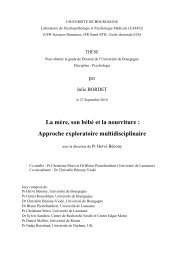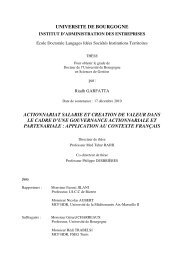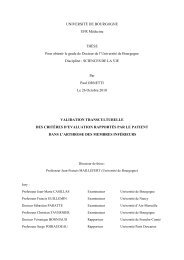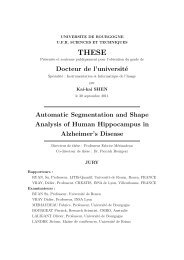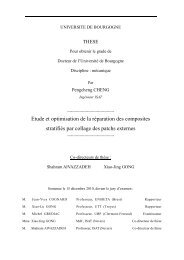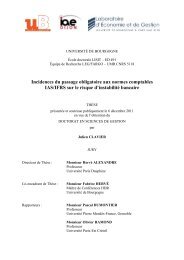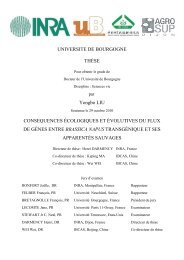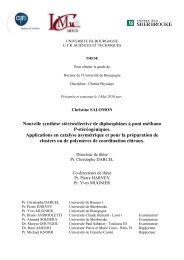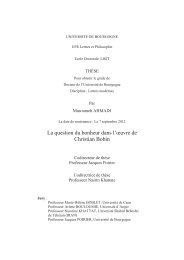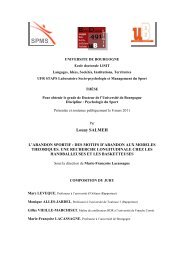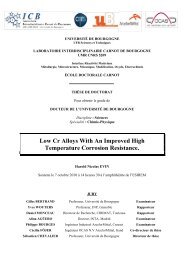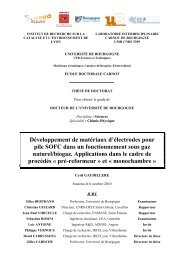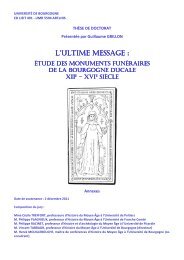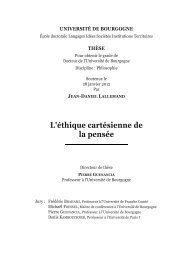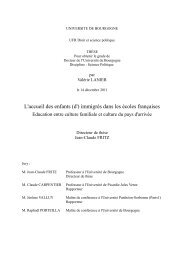Higher education in Asian countries and the role of international ...
Higher education in Asian countries and the role of international ...
Higher education in Asian countries and the role of international ...
Create successful ePaper yourself
Turn your PDF publications into a flip-book with our unique Google optimized e-Paper software.
131<br />
was adopted by WCHE <strong>in</strong> 1998, to see its effect on higher <strong>education</strong> <strong>and</strong> to set future actions <strong>in</strong><br />
response to 21 st century challenges.<br />
Dur<strong>in</strong>g WCHE +5 meet<strong>in</strong>g a number <strong>of</strong> major <strong>in</strong>itiatives <strong>and</strong> developments at <strong>the</strong> world level<br />
were <strong>in</strong>dentified, which had positive impact on <strong>the</strong> higher <strong>education</strong>. The participants <strong>of</strong> this<br />
meet<strong>in</strong>g stressed on <strong>the</strong> member states <strong>and</strong> partners <strong>in</strong> higher <strong>education</strong> to align <strong>the</strong>ir action<br />
accord<strong>in</strong>g to World Declaration on <strong>Higher</strong> Education.<br />
World Conference on <strong>Higher</strong> Education 2009<br />
In 2009 UNESCO aga<strong>in</strong> set that stage for higher <strong>education</strong> by organiz<strong>in</strong>g second World<br />
Conference on <strong>Higher</strong> Education (WCHE+10). In this conference 1400 stakeholders from 150<br />
<strong>countries</strong> <strong>and</strong> territories participated. The pr<strong>in</strong>cipal objectives <strong>of</strong> this event were to appraise <strong>and</strong><br />
scale <strong>the</strong> changes <strong>and</strong> transformation <strong>in</strong> higher <strong>education</strong> s<strong>in</strong>ce WCHE <strong>in</strong> 1998, to deal with <strong>the</strong><br />
new dynamics that shape higher <strong>education</strong> <strong>and</strong> to identify l<strong>in</strong>es to build <strong>in</strong>clusive, equitable <strong>and</strong><br />
susta<strong>in</strong>able societies through higher <strong>education</strong>. This first biggest event <strong>of</strong> 21 st century for higher<br />
<strong>education</strong> <strong>of</strong>fered global community an opportunity to show <strong>the</strong>ir commitment to develop higher<br />
<strong>education</strong> <strong>and</strong> use higher <strong>education</strong> as a driver <strong>of</strong> development. The participants <strong>of</strong> <strong>the</strong><br />
conference adopted a Communiqué that provides a guidel<strong>in</strong>e to all stakeholders for renewed<br />
actions, reforms <strong>and</strong> new <strong>role</strong> <strong>of</strong> higher <strong>education</strong>. (Annex- The Communiqué)<br />
5.1.2.11.2 UNESCO <strong>in</strong>itiatives <strong>and</strong> outcomes <strong>in</strong> Asia Pacific region<br />
UNESCO showed its presence <strong>in</strong> Asia <strong>and</strong> <strong>the</strong> Pacific region soon after its birth <strong>and</strong> s<strong>in</strong>ce <strong>the</strong>n it<br />
has been assist<strong>in</strong>g member <strong>countries</strong> <strong>in</strong> capacity build<strong>in</strong>g at different levels. In <strong>the</strong> field <strong>of</strong><br />
<strong>education</strong> it has m<strong>and</strong>ated UNESCO-Bangkok <strong>of</strong>fice, which is play<strong>in</strong>g its active <strong>role</strong> for <strong>the</strong><br />
development <strong>of</strong> <strong>education</strong> at all levels <strong>in</strong> order to br<strong>in</strong>g a socio-economic uplift betterment<br />
particularly <strong>in</strong> less <strong>and</strong> least developed <strong>countries</strong> <strong>of</strong> <strong>the</strong> region. Like <strong>the</strong> world economy, <strong>Asian</strong><br />
economy also is shift<strong>in</strong>g very rapidly towards <strong>in</strong>formation <strong>and</strong> knowledge based economy where<br />
higher <strong>education</strong> has a pervasive <strong>role</strong> to play <strong>and</strong> <strong>the</strong> UNESCO is well aware <strong>of</strong> <strong>the</strong>se global<br />
changes <strong>and</strong> transitions. So this organization has been play<strong>in</strong>g its active <strong>role</strong> <strong>in</strong> <strong>the</strong> field <strong>of</strong> higher<br />
<strong>education</strong> for <strong>the</strong> last many decades but s<strong>in</strong>ce <strong>the</strong> end <strong>of</strong> <strong>the</strong> twentieth century UNESCO along<br />
with its partner organization is very active <strong>in</strong> <strong>the</strong> development <strong>of</strong> higher <strong>education</strong> so that<br />
member state could face <strong>the</strong> new challenges <strong>of</strong> <strong>the</strong> twenty first century. In this regard UNESCO



